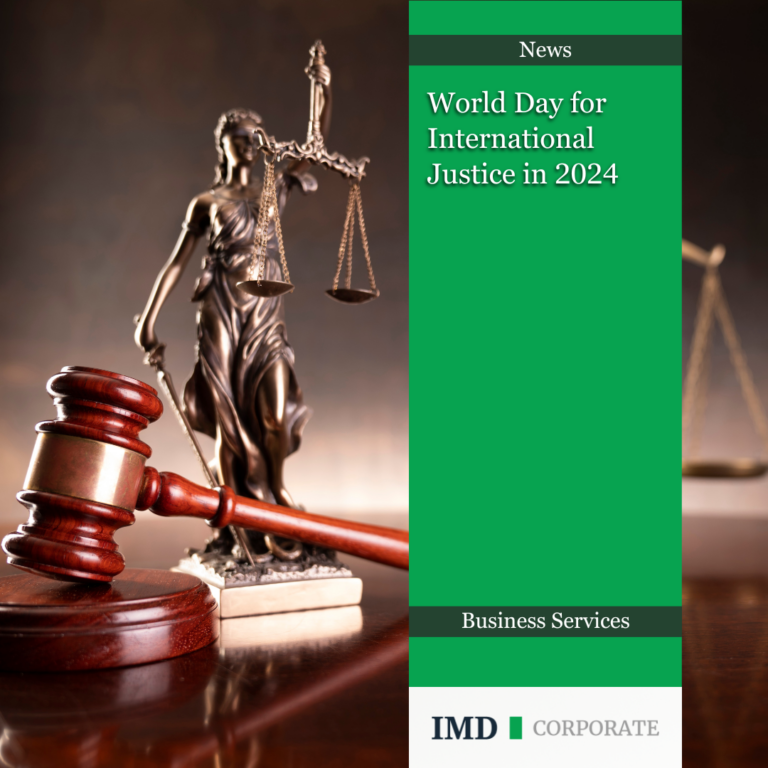17th July marks the annual observance of World Day for International Justice, a day dedicated to commemorating the adoption of the Rome Statute on this date in 1998. This treaty established the International Criminal Court (ICC), an institution central to the global fight against impunity for the most serious crimes: genocide, war crimes, crimes against humanity, and aggression. Is the ICC still effective and relevant in 2024?
Reflecting on the ICC debate
The ICC’s establishment was a landmark in international law, but its effectiveness and role have been subjects of ongoing debate. The New York Times’ “Room for Debate” series, particularly the article “The ICC Deserves Our Full Support,” provides insightful perspectives on this issue. Supporters argue that the ICC plays an essential role in global justice, highlighting its successes in prosecuting war criminals and providing a deterrent against future atrocities.
Critics raise concerns about perceived bias in the ICC’s focus on African cases, which has led to questions about the court’s impartiality. Additionally, the ICC faces significant challenges with enforcement, relying heavily on state cooperation to apprehend and transfer suspects for trial. Moreover, the court’s operations are frequently influenced by political complexities, which can complicate its mandate and impact the efficacy of its efforts to uphold international justice standards.
Despite these challenges, the argument for full support of the ICC emphasises its unique role in the international legal framework.
Still relevant today
It should be mentioned the recent ICC’s efforts to hold powerful individuals accountable. The example is the issuance of arrest warrants against Russian President Vladimir Putin and Maria Lvova-Belova, the Presidential Commissioner for Children’s Rights in Russia, in connection with war in Ukraine.
According to the ICC, they are alleged to be responsible for the unlawful deportation and transfer of children from occupied areas of Ukraine to the Russian Federation.
During one of the press conferences, Dmytro Lubinets, the Ukrainian human rights commissioner, said “In my opinion, after the two arrest warrants were issued by the International Criminal Court for Putin and Lvova-Belova, it has become easier to return children.”
If so, the impact of ICC is not only judicial.
On 5th March 2024, the ICC issued two further warrants of arrest for Sergei Ivanovich Kobylash and Viktor Nikolayevich Sokolov, “in the context of the situation in Ukraine for alleged crimes committed from at least 10 October 2022 until at least 9 March 2023”.
As we can read at the ICC’s website:
“(…) each is allegedly responsible for the war crime of directing attacks at civilian objects (article 8(2)(b)(ii) of the Rome Statute) and the war crime of causing excessive incidental harm to civilians or damage to civilian objects (article 8(2)(b)(iv) of the Rome Statute), and the crime against humanity of inhumane acts under article 7(1)(k) of the Rome Statute”.
The arrest warrants are binding in 125 states which makes international travel for those individuals at least more difficult.
“Bridging Gaps, Building Alliances”
This year’s theme of World Day for International Justice, “Bridging Gaps, Building Alliances,” calls on the global community to address disparities in the justice system and improve collaboration across borders and disciplines. The theme highlights the need to close the gaps that hinder access to justice and to build strong alliances that enhance our collective ability to uphold the rule of law.
We are all aware that access to justice remains a challenge, with marginalised groups often unable to access legal services (and legal education). Technology holds promise for improving justice delivery, but disparities in access and literacy must be addressed to ensure equitable benefits across all segments of society.
Effective international justice hinges on robust cross-border cooperation among states, organisations, and legal bodies. Interdisciplinary partnerships involving legal experts, human rights advocates, policymakers, and technologists are essential to tackle complex justice issues by integrating diverse perspectives and innovative solutions.
A call to reflect on basic legal principles
Perhaps for legal professionals, World Day for International Justice should be less about the ICC and more about an opportunity to remember and uphold the basic legal principles that should guide our daily work. These principles include:
- Equality before the law: Ensuring that every individual, regardless of their status or background, is treated equally and fairly under the law.
- Right to a fair trial: Upholding the rights of individuals to a fair and impartial trial, ensuring due process, and protecting the presumption of innocence.
- Access to justice: Working towards making legal assistance accessible to all, particularly the marginalised and vulnerable, so that justice is not a privilege of the few but a right for all.
- Independence of the judiciary: Protecting the independence and impartiality of the judiciary to maintain public confidence in the legal system and ensure that justice is administered without fear or favour.
- Accountability and transparency: Promoting accountability and transparency within the legal profession to build trust and integrity in the justice system.
Moving forward
World Day for International Justice commemorates the adoption of the Rome Statute and the establishment of the ICC, which as we can see, is still crucial today.
This year’s theme, “Bridging Gaps, Building Alliances”, emphasises the imperative of enhanced cross-border cooperation, interdisciplinary partnerships, and community engagement to overcome barriers to justice. It calls for addressing access disparities, enhancing legal education, and ensuring equitable access to technology.
Ultimately, the day serves as a reminder of the fundamental legal principles guiding legal professionals in their pursuit of justice worldwide, because our role extends beyond the courtroom. World Day for International Justice serves as a timely reminder of the broader impact of our daily work on society. By consistently applying these fundamental principles, we contribute to a fairer, more just world.
This article is for general information only and does not constitute legal or professional advice. Please note that the law may have changed since this article was published.



